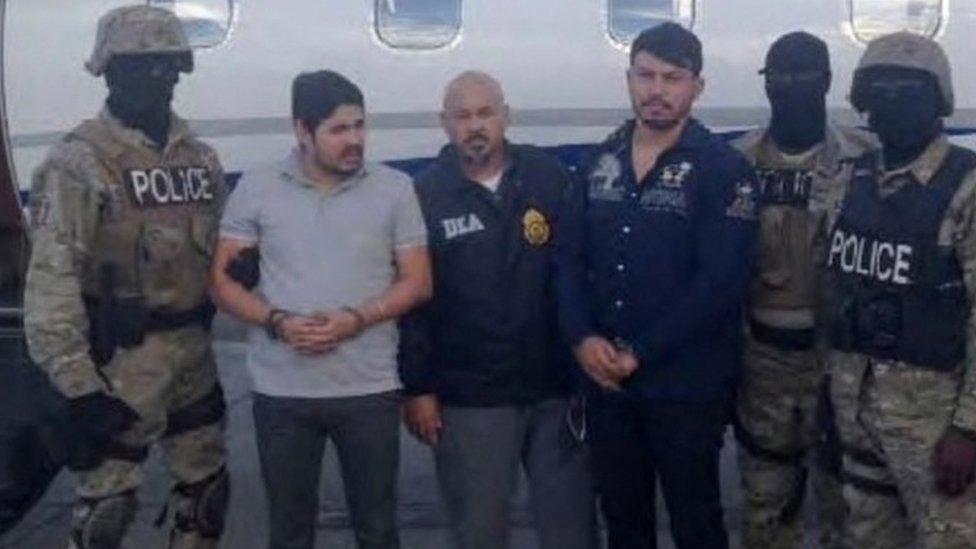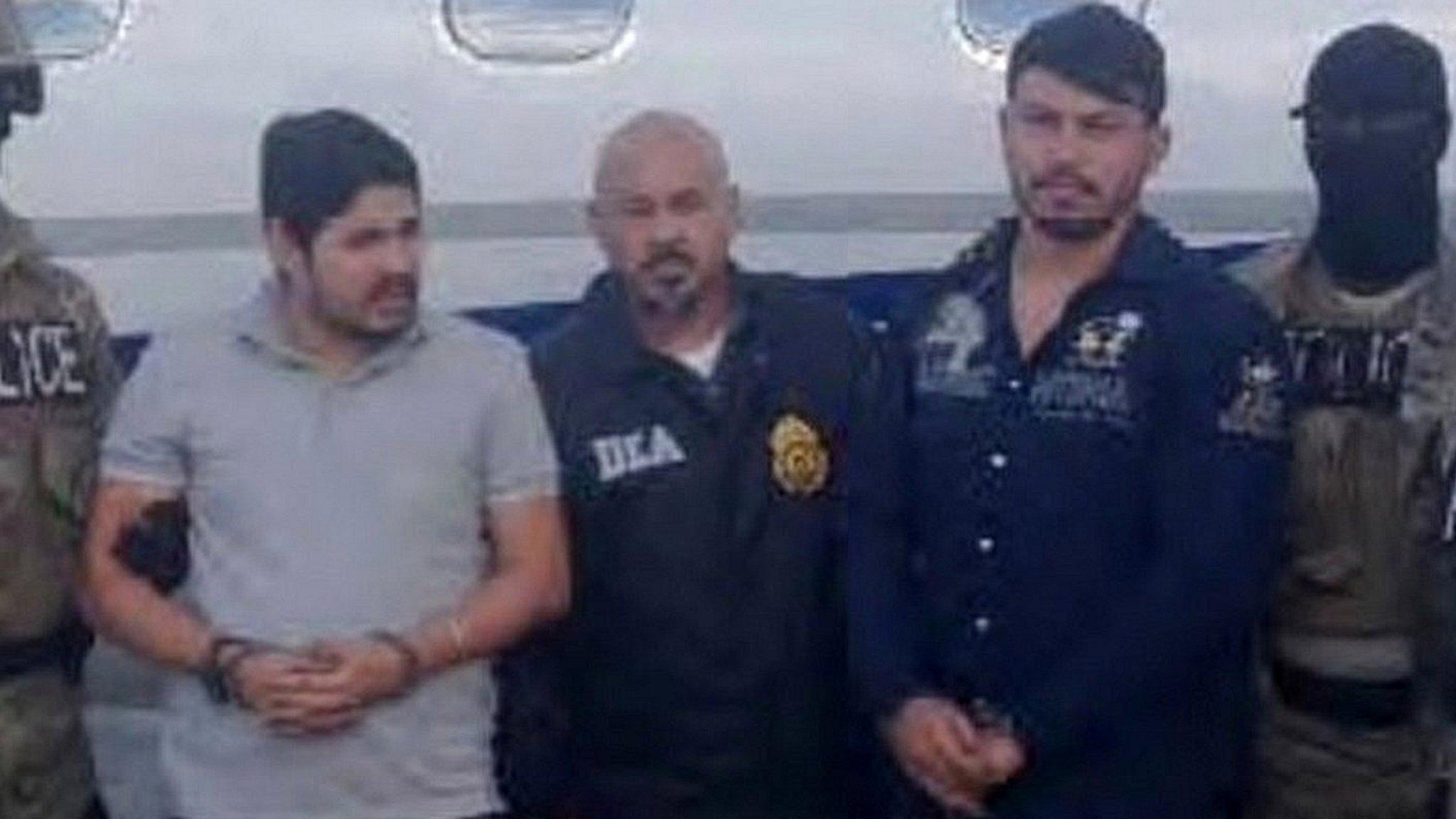US frees President Maduro's relatives in Venezuela prisoner swap
- Published

Franqui Flores and Efrain Antonio Campo Flores - nephews of Venezuela's first lady - were arrested in 2015
Venezuela has freed seven jailed Americans in exchange for the release of two relatives of Venezuelan President Nicolas Maduro, the two countries have confirmed.
The swap included five American oil executives, US officials said.
The Americans were exchanged for two of Mr Maduro's wife's nephews, who were serving 18-year sentences in the US on drug charges, the officials said.
Venezuela said two men "unjustly" held in the US were freed.
It added that a group of US citizens were released for "humanitarian reasons".
The swap included executives of Venezuela's US-based oil company, Citgo, in addition to US Marine veteran Matthew Heath and another American citizen named Osman Khan, US officials said.
The oil executives - Tomeu Vadell, Jose Luis Zambrano, Alirio Zambrano, Jorge Toledo and Jose Pereira - were jailed five years ago, after being summoned to a meeting in Caracas, where they were charged with terrorism.
President Joe Biden said in a statement that the "wrongfully detained" Americans would soon be reunited with their relatives.
"Today, we celebrate that seven families will be whole once more. To all the families who are still suffering and separated from their loved ones who are wrongfully detained - know that we remain dedicated to securing their release," he added.
In exchange for their freedom, Mr Biden agreed to release two nephews of Venezuela's first lady, Cilia Flores.
Franqui Flores and Efrain Antonio Campo Flores were arrested in Haiti in 2015, then taken to New York where they were convicted of drug charges.
The Venezuelan government said in a statement that the "release of two young Venezuelans unjustly imprisoned in that country has been achieved".
A US official said the swap happened at an airport in an unspecified third country.
For many years, the US has accused Mr Maduro of leading a left-wing dictatorship.
But the Biden administration has recently sent envoys to reopen dialogue with Venezuela. Critics say the change of policy was triggered by the invasion of Ukraine and the US determination to reduce dependence on Russian oil.
Related topics
- Published15 December 2017
